The 2C2T – Center for Textile Science and Technology was highlighted on “90 Segundos de Ciência,” a program broadcast nationally by Antena 1. This program, an initiative of the António Xavier Institute of Chemical and Biological Technology (ITQB NOVA) and the School of Social Sciences and Humanities (FCSH NOVA), in collaboration with Antena 1 and supported by the Foundation for Science and Technology (FCT), aims to showcase recent scientific and technological innovations developed in Portugal.
The program spotlighted two innovative projects developed in collaboration with 2C2T:
Project Operator: Digital Transformation and Well-Being in the Industrial Environment
Presented by Miguel Ângelo Carvalho, a researcher from 2C2T, Project Operator is an initiative from MIT Portugal that seeks to improve productivity, ergonomics, and the well-being of workers in the textile and automotive industries. This project is developing wearable inertial sensors capable of monitoring workers’ movements and digitizing work methods, providing essential data to help prevent musculoskeletal issues in industries characterized by repetitive tasks.
Project Operator includes several renowned institutions, such as Fraunhofer Portugal, the New University of Lisbon, Volkswagen Autoeuropa, NST Apparel, the University of Porto, the University of Minho, and ControlConsul. Learn more about the episode here: https://www.90segundosdeciencia.pt/episodes/ep-1772-miguel-carvalho/
Project 4NoPressure: Textile Technology for Pressure Ulcer Prevention
Another featured project was presented by Luísa Arruda, a former doctoral student from 2C2T and project manager at Fibrenamics’ Design Unit. The 4NoPressure project aims to develop a smart pyjamas to prevent the formation of pressure ulcers, a common issue among patients with reduced mobility.
For this innovative pyjamas, textile structures with low-friction yarns were created to minimize friction between the fabric and the skin. Additionally, microcapsules were incorporated to help maintain a constant temperature and promote skin hydration using essential oils. The pyjamas also includes advanced sensors that monitor changes in temperature, humidity, and pressure on the user’s skin, transmitting this data to an application that alerts caregivers to adjust the patient’s position, thereby reducing the risk of ulcer formation.
The 4NoPressure project is led by the IMPETUS group, with participation from the University of Minho (UM) through Fibrenamics, 2C2T, and the CEB, as well as from the International Iberian Nanotechnology Laboratory (INL) and the Coimbra Nursing School (ESEnfC). For more details, view the full episode with Luísa Arruda here: https://www.90segundosdeciencia.pt/episodes/ep-1866-luisa-arruda/




